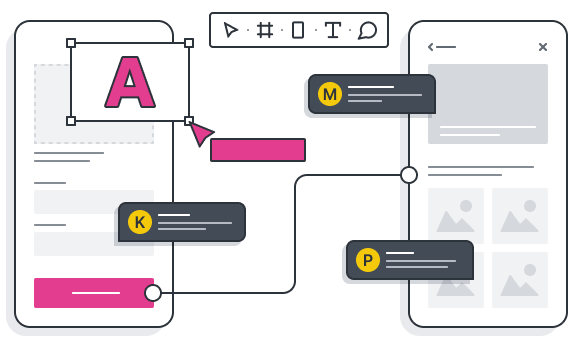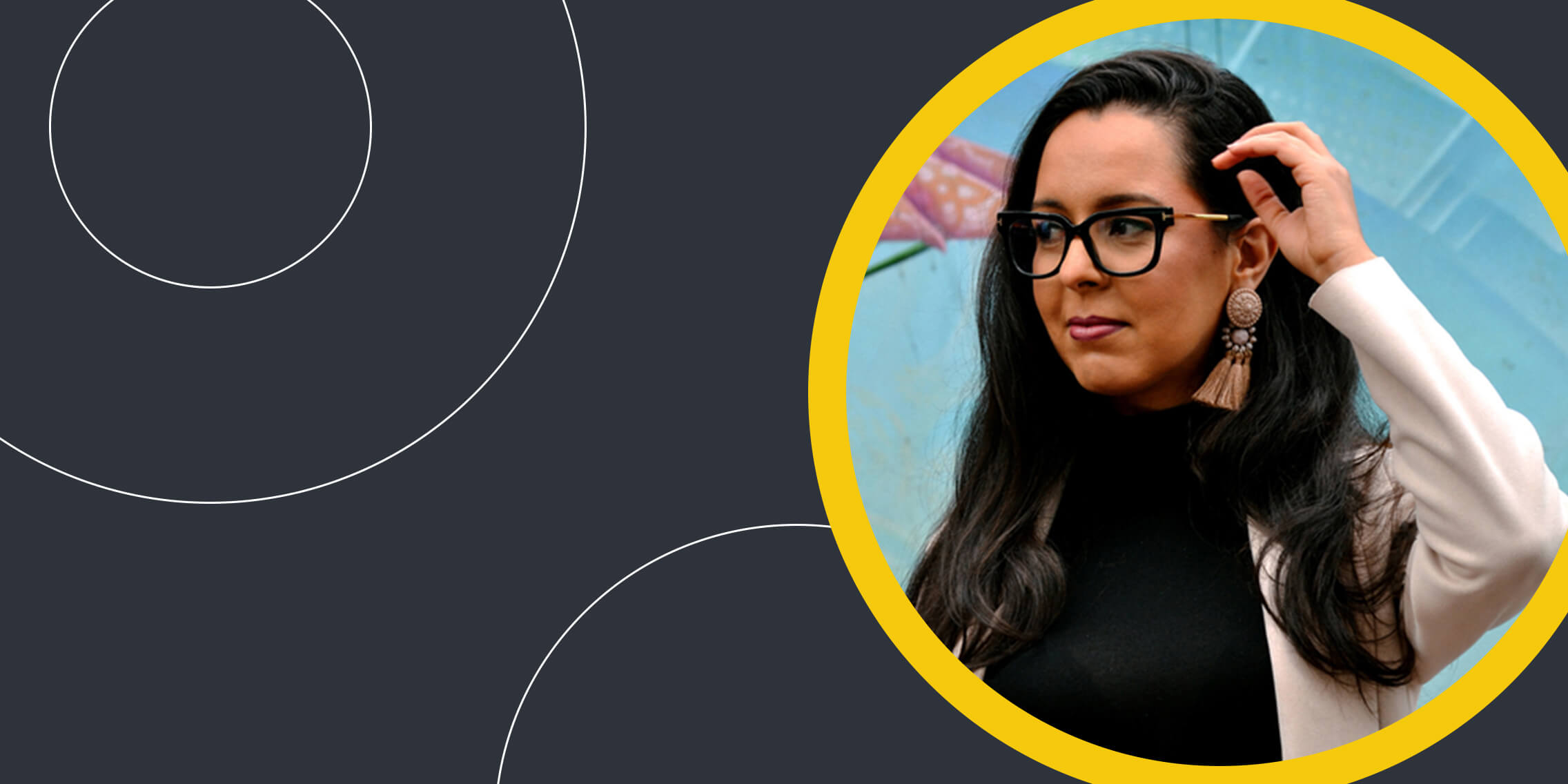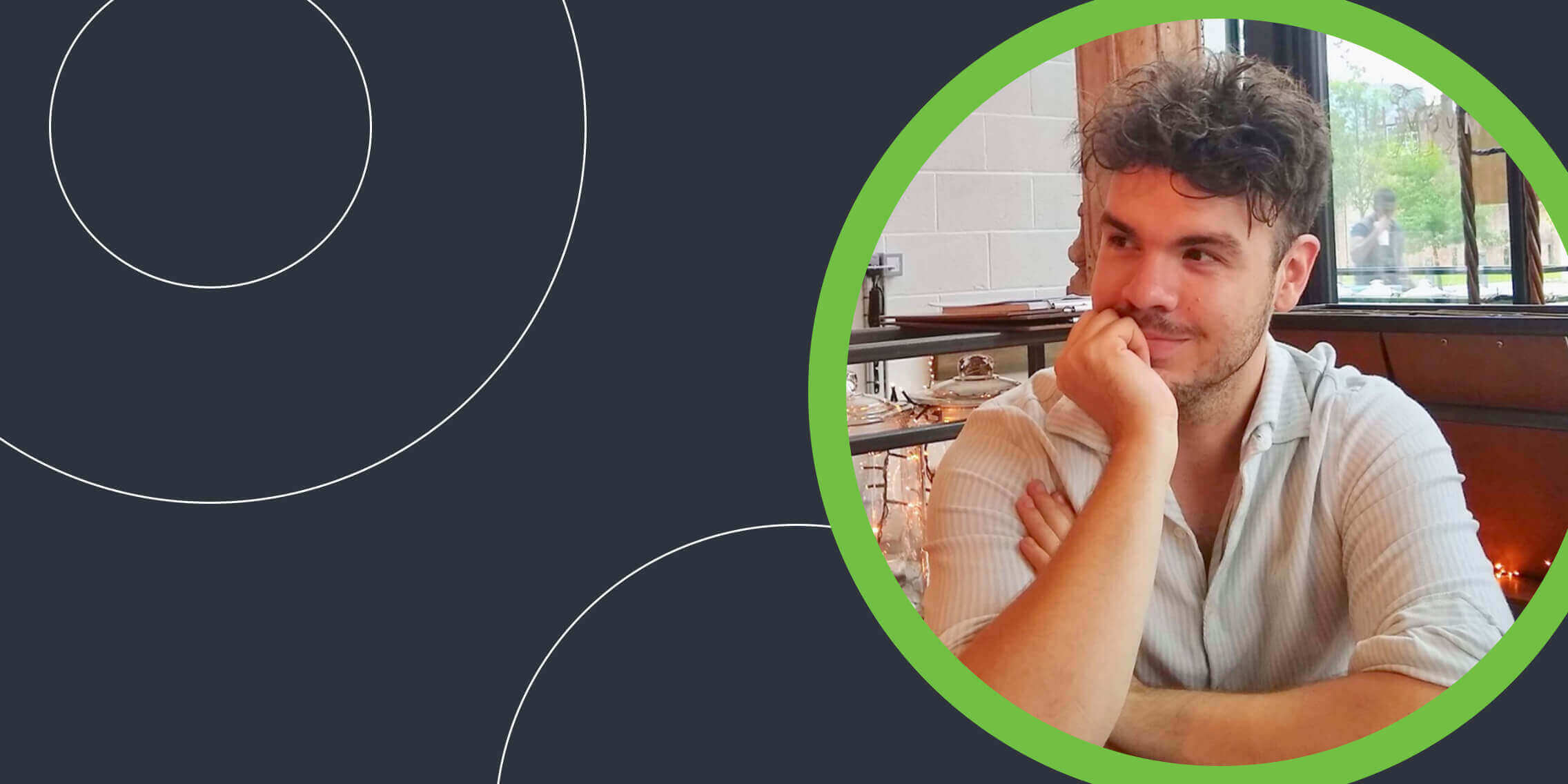Melanie Polkosky has over 20 years experience in UX research and design.
A cognitive psychologist (PhD), Melanie has worked as a UX consultant for a number of Fortune 500 companies around the world. She is a renowned advocate for greater gender diversity and in 2015 wrote a book titled, “Uncovering Truffles: The Scarcity and Value of Women in STEM”.
She spoke to us about how she built a successful long term UX career.
Can you describe your career to date?
In a word, eclectic. I began my career as a teacher, then moved to speech pathology to pursue my passion for linguistics. I worked with children with severe disabilities but it quickly led to burn out. I couldn’t leave my work at work, I felt too emotionally involved to be effective.
I was also really interested in the interaction between people and their communication systems. This led me to pursue a doctorate in cognitive psychology. The program was aligned with my interests in technology, speech technology and human factors.
After that, I got an internship at IBM Voice Systems and was offered a job there.
I worked at IBM for 14 years. I started in R&D (research and development) doing UX work for voice servers. IBM also had some consumer products that they were working on, a sort of precursor to Siri on a small mobile device. The work was really exciting.
Most of my time at IBM was spent consulting with clients on how to create their own voice systems. At a later stage I joined an accessibility team which was more strategic. From there, I took a pretty big leap and started my own consulting business.
Why did you decide to go freelance?
Freelancing gives me a ton of variety because I can pick and choose the different projects I want to work on. I have influence without getting so immersed in things like office politics. I’m just the kind of personality that gets really emotionally involved in all that stuff.
Even though I think empathy is one of the most important qualities you can have, and certainly critical to UX, too much empathy actually makes you ineffective.
I wouldn’t have had the confidence to do freelancing right at the beginning of my UX career. There’s benefit to starting out in a team where you have mentors, it’s important to learn from the experience of others.
What’s your favourite thing about working in UX research?
Variety. The weirder, more constrained or complicated a research study is, the more fun I’ll have with it. I really like it when someone says to me we’re curious about this issue but you only have a limited budget. Taking that kind of complexity and figuring out a little path through the mess to the insights is really fun for me.
What are your thoughts on UX specialisms?
I think specialising is a good thing because it helps you get depth in something that’s really meaningful for you. But I would worry about becoming overly specialised and losing the forest for the trees.
At some level, there has to be an overarching vision for what the experience is you’re creating. There’s a great book called “Range: Why Generalists Triumph in a Specialized World” by David Epstein that makes the case that generalists are better suited to complex and unpredictable situations, which is what UX professionals usually find themselves in. Of all our general skills, I’ve come to think that the soft skills are critically important to success in UX.
I spend a huge amount of time thinking about how to nurture those interpersonal skills; negotiation, collaboration, conflict resolution, communication, etc. I think those are absolutely critical to a quality UX role.
How important are job titles?
It’s funny, I’m a writer so words are really important to me. But I have to say that this is one area where words are just meaningless to me. For me, the title really doesn’t matter. I think your skills, how effectively you communicate, and how you can contribute are far more important.
What skills do you think are really important to do UX research?
Interpersonal skills and emotional intelligence are critical to the role.
I see UX people as being the wellspring of emotional intelligence in most organisations.
You just see a lot of people that come from a behavioural science or art and design backgrounds. They tend to be much more people-focused than other parts of the organisation.
As a researcher, I see lots of value in both quantitative and qualitative work. I consider myself a mixed-method researcher because what I try to do is integrate both qualitative and quantitative methods together in one study. That takes the strengths of both methods and puts them together in a way that can be really meaningful in the business world.
Tell us about your book, Uncovering Truffles?
I was the only woman in the room for a lot of my career and wanted to know if my experiences were about me or if there was something more to it. So I wrote the book to understand and heal myself, plus support women who find themselves in a similar place. I was also getting a coaching certification around this time and was interested in getting more women into STEM fields.
“Uncovering Truffles” looks at the evolving relationship children have with maths and science, and how it differs for boys and girls. From a developmental psychology perspective, we see that by the time girls are in high school, they’re largely hating maths and science and resisting those fields. This results in fewer women in these courses in college.
A lot of the women I coach are doing UX in tech companies but they’re feeling frustrated, disempowered, and minimised. I had similar experiences in my early career.
I was really unhappy for a lot of my time in the tech field. I was questioning myself and struggling with imposter syndrome.
How do you help women build long term careers in the tech industry?
By helping them to understand their own strengths and values, which can act as an anchor.
For example, if they’re in a culture that isn’t supportive of their values, they are at least grounded and empowered by their own values. They can look more objectively at the culture and see it’s a mismatch, as opposed to thinking there’s something wrong with them.
I tend to work a lot with narrative coaching. It’s examining the stories that we tell ourselves about our experience; understanding who we are, what’s important to us and what contributions we want to make, and if it’s possible in our current environment.
Luckily, there seems to be change afoot. Companies are starting to recognise the importance of a coaching culture. I think it’s really key for underrepresented groups.
What advice would you give new UX professionals?
Think about what your history uniquely prepares you for.
Your history can help inform your career. I really encourage people to look at where you’re coming from, your unique hobbies, skill sets or content areas that can make you unique.
Don’t underestimate the other skills that you could potentially bring to your current role. Even if they’re not quite within the remit of the role itself – they can still have a benefit and bring something new.




